Description
ABSTRACT
N50 Stamp Duties: Unearthing the Incongruity in the CBN Circular
Joseph Onele* & Emokiniovo Dafe-Akpedeye**
The article considers the propriety of the Central Bank of Nigeria (CBN) 2016 Circular requesting deposit money banks and other financial institutions to charge N50 per eligible transaction, in accordance with the provisions of the Stamp Duties Act, the Federal Government Financial Regulations 2009 and as reinforced in Suit No FHC/L/CS/1710/2013: Kasmal International Services Limited v Central Bank of Nigeria (Kasmal Case). The article tests the CBN Circular against the extant laws and determines whether the Circular can indeed be situated within the purview of the relevant legal framework and the case it seeks to rely on. The article argues that the definition of “receipt” in relation to stamp duties must be limited to the meaning gleaned from the general tenor of the Act. The article interrogates the decision in Kasmal Case and submits that the CBN misinterpreted the statute and acted ultra vires in issuing the 2016 Circular. The article concludes that it was never within the contemplation of the Act that electronic transfers would be liable to stamp duty and recommends that the CBN acts within the ambit of the powers vested on it by law and not otherwise.
INTRODUCTION
It is no news that the Central Bank of Nigeria (CBN), on 15 January 2016, issued a circular titled “Collection and Remittance of Statutory Charges on Receipts to Nigeria Postal Service under the Stamp Duties Act”,1 addressed to all deposit banks (DMBs) and Financial Institutions, enjoining them to support the Federal Government’s revenue generation drive, through compliance with the provisions of the Stamp Duties Act (2016 Circular).
As garnered from the 2016 Circular,2 it is the CBN case that the Federal Government of Nigeria (FGN) is exploring revenue opportunities in the non-oil sectors, especially taxes and rates, as part of its efforts to boost its revenue base. It is against this background that the CBN enjoined banks and other financial institutions to support the Government’s revenue generation drive through compliance with the provisions of the Stamp Duties Act3 (SDA) and as reinforced in Kasmal International Services Limited v Central Bank of Nigeria4 (Kasmal Case).
* LL.B (Ibadan) First Class Honours, B.L.(Hons). Associate at Olaniwun Ajayi LP, Lagos
** BA (Oxford), B.Sc. (Bristol)(First Class Honours), BL (Hons). Associate at Olaniwun Ajayi LP, Lagos
- See Central Bank of Nigeria Circular dated 15 January, 2016, Circular No. CBN/GEN/DMB/02/006 addressed to all Deposit Banks (DMBs) and Financial Institutions titled ‘Collection and Remittance of Statutory Charges on Receipts to Nigeria Postal Service under the Stamp Duties Act’ accessed 11 July 2016; see also PwC Nigeria January 2016 tax alert titled ‘Stamp Duties now payable on banking transactions’ accessed 11 July 2016
- See again the Central Bank of Nigeria Circular, ibid
- Cap. S8, Laws of the Federation of Nigeria (LFN) 2004
- (Unreported Federal High Court of Nigeria Decision), Suit No FHC/L/CS/ 1710/2013 – Kasmal International Services Limited v Central Bank of Nigeria

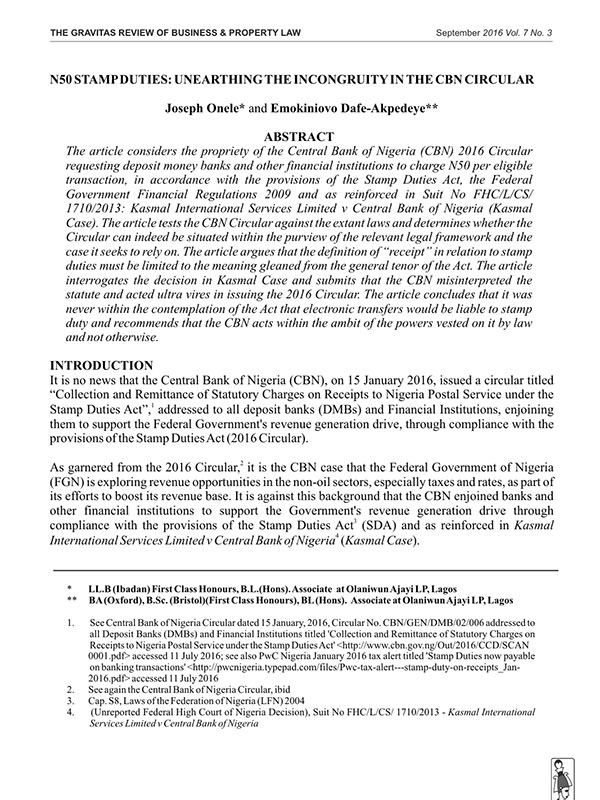
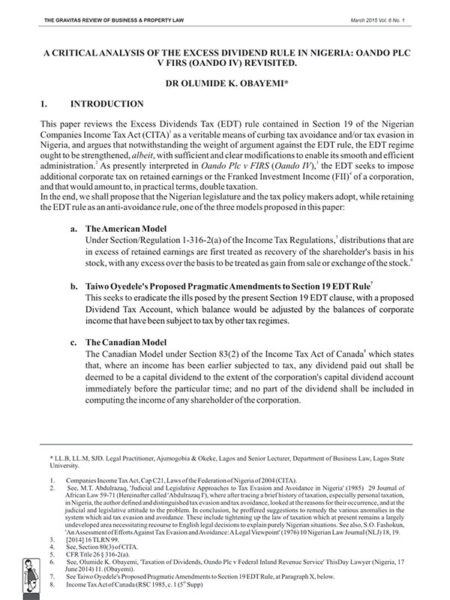
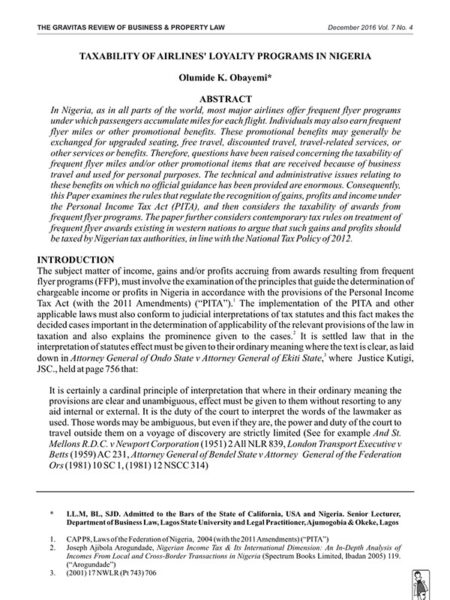
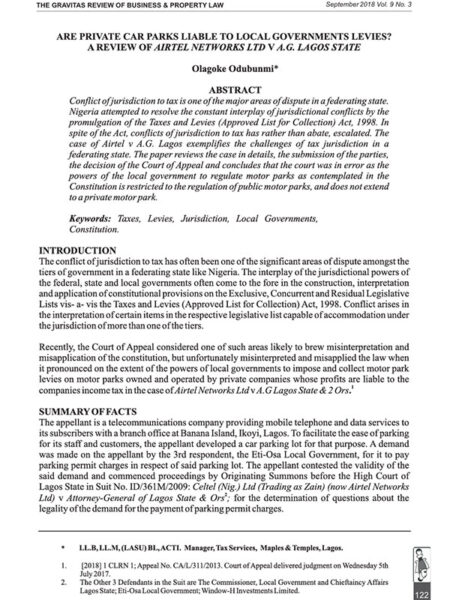
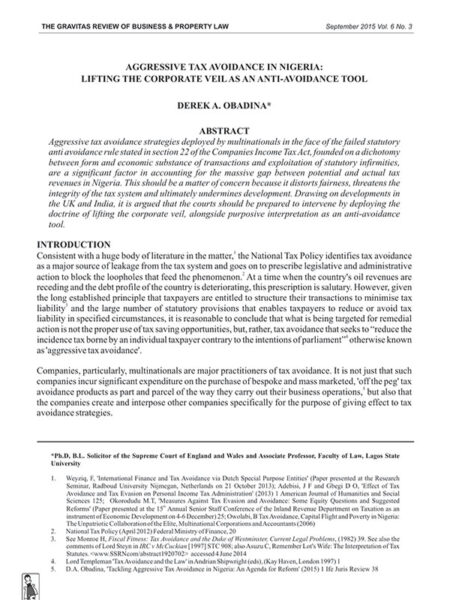


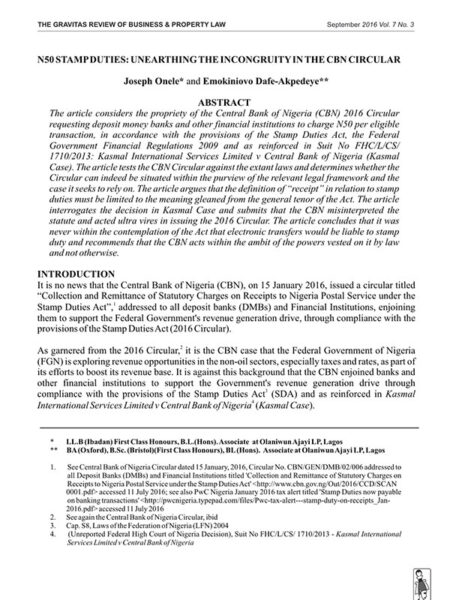
Reviews
There are no reviews yet.